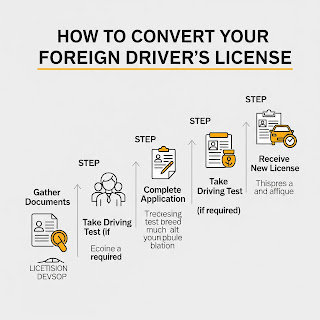Understanding Article 74 of Saudi Labor Law – Termination of Contract Without Misconduct
Introduction
In Saudi Arabia, both employers and employees are protected by a well-defined legal framework under the Saudi Labor Law. One of the most important but often misunderstood provisions is Article 74, which outlines the legitimate reasons for terminating an employment contract without misconduct. Whether you're an expat worker or a Saudi national, it's essential to understand how this law affects your job security and what your rights and responsibilities are when a contract is ended by either party.
This blog will explain Article 74 of the Saudi Labor Law in detail, clarify what each clause means, and offer practical advice for employees dealing with contract termination.
🔍 What is Article 74 of Saudi Labor Law?
Article 74 describes the legal conditions under which an employment contract can be terminated lawfully without any party being at fault. In other words, it's not about breaking the rules or committing a violation—it’s about the contract reaching a natural or mutually agreed-upon end.
According to the Saudi Labor Law, an employment contract can be ended in the following situations under Article 74:
📄 1. Mutual Agreement Between Employer and Employee
If both parties agree in writing to terminate the contract, it can be ended at any time. However, both must consent freely, and the agreement must be documented.
📝 Tip for Expats: Always keep a copy of any signed agreement regarding resignation or termination to avoid future disputes.
🧑💼 2. Expiration of Fixed-Term Contract
If your employment contract is for a fixed period, it automatically ends once the term is completed unless it is renewed.
-
If the contract is not renewed and the employee continues to work, it becomes an open-ended contract.
📌 Example: You signed a 2-year contract that ends in December 2025. If the employer doesn’t renew and you stop working, that’s a valid termination.
🔁 3. Termination Based on a Clause in the Contract
Many contracts include specific termination clauses, such as:
-
Early termination with a notice period (usually 30 or 60 days)
-
Payment in lieu of notice
-
Termination due to company restructuring
If the employer or employee invokes this clause properly, it becomes a valid reason to terminate the contract.
🛑 4. Retirement of the Employee
The labor law allows for termination when the employee reaches retirement age:
-
Typically 60 years for men and 55 years for women (unless otherwise agreed).
However, employees may continue working post-retirement age if both parties agree.
⚖️ 5. Force Majeure (Exceptional Circumstances)
Sometimes contracts can be terminated due to unforeseen, uncontrollable events, such as:
-
Natural disasters
-
War
-
Major company losses or bankruptcy
This is referred to as "Force Majeure" in legal terms and is accepted under Article 74.
🧑🔧 6. Closure of the Business or Ending Activity
If the company or organization shuts down, or if the department where the employee works is permanently closed, then the contract may be terminated.
Note: The employer must provide evidence and may be required to compensate employees depending on the situation.
🚫 7. Termination by Either Party in an Open-Ended Contract
In non-fixed contracts, either party (employer or employee) may terminate the contract with proper written notice. The notice period is usually:
-
30 days for monthly-paid employees
-
15 days for hourly/daily/weekly-paid workers
Failure to provide the required notice can lead to financial compensation equal to the notice period salary.
👨⚖️ Rights of Employees Under Article 74
If your contract is terminated under Article 74, here's what you're entitled to:
-
End of Service Benefits (ESB) – Calculated based on years of service.
-
Pending salaries or benefits – Including vacation pay, overtime, or bonuses.
-
Clear explanation or written reason for the termination.
-
Experience certificate upon request (mandatory under Saudi Labor Law).
❗ When Article 77 Might Apply Instead
If your termination does not fall under Article 74, your employer might apply Article 77, which allows termination for any reason with compensation.
The key difference is:
-
Article 74 is lawful and justified termination with predefined conditions.
-
Article 77 is termination without justification, requiring financial compensation to the affected employee.
🔒 Protection Against Arbitrary Dismissal
The Saudi Ministry of Human Resources and Social Development ensures that:
-
Terminations must follow the law
-
Employers cannot terminate workers unfairly
-
Labor courts can be approached for disputes
If you feel your termination is unjustified, you have the legal right to file a complaint with the Saudi labor court or through the Musaned and Qiwa platforms.
📌 Final Thoughts
Understanding Article 74 of the Saudi Labor Law is essential for both employers and employees. It ensures that employment contracts are terminated fairly, with legal safeguards in place for both sides. If you're working in Saudi Arabia—especially as an expat—it’s wise to know your rights, maintain documentation, and seek legal advice when needed.
Internal Links You Can Add:




Comments
Post a Comment